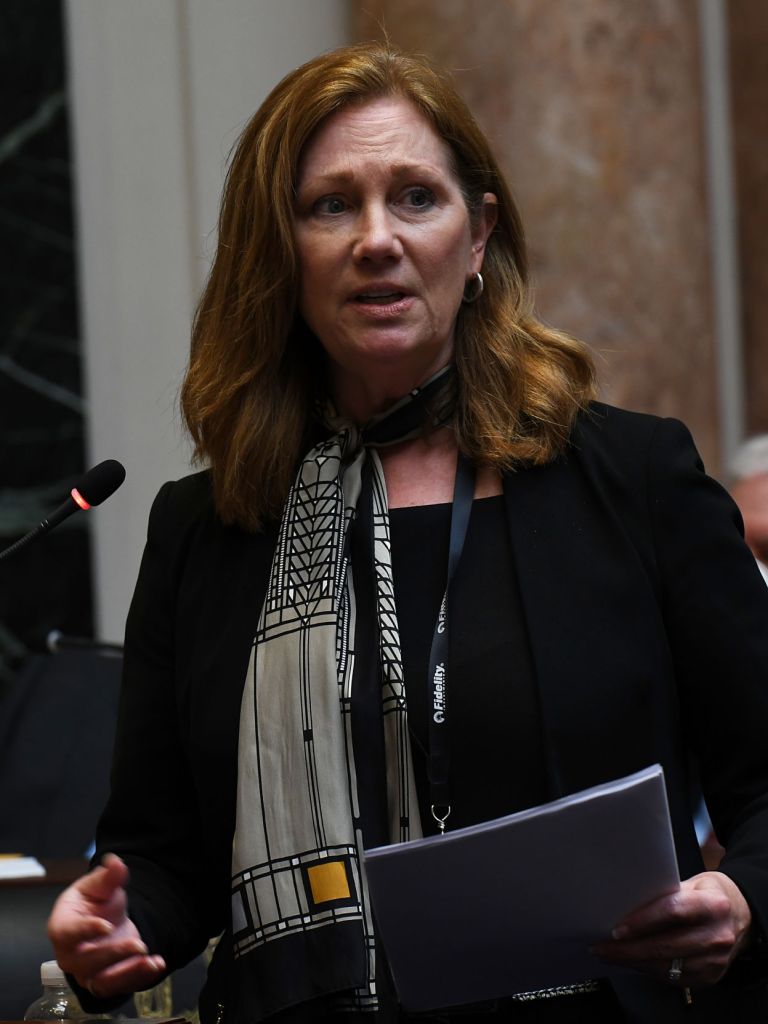House bill to ban gender transition services now in Senate
Published 8:00 am Tuesday, March 7, 2023

- Rep. Kimberly Poore Moser, R-Taylor Mill, expresses concerns with House Bill 470 in the House last week.
With less than half of the session to go, the General Assembly sped its pace last week. Between the House and the Senate, 56 bills were passed through one chamber.
A few of these bills garnered statewide attention, but none more than House Bill 470, which would ban gender transition services to individuals under 18.
According to the current version of the bill, prohibited gender transition services would include all gender reassignment surgeries, puberty-blocking drug prescriptions and estrogen, testosterone or other hormone treatments in “amounts that are larger or more potent than would normally occur naturally in a healthy person of the same age and sex.”
The original bill also included social transition services as banned services, which would have included any “encouragement, affirmation or advocacy” for gender transition, like using the patient’s preferred pronouns or name. That provision was nixed in the final House version.
The bill, sponsored by Rep. Jennifer Decker, R-Waddy, states that a health care provider who provides any gender transition services to a patient under 18 is demonstrating “unethical and unprofessional conduct that establishes the provider is unfit to perform the duties” of their profession.
If HB470 becomes law, providers who violate it would have their license or certification revoked upon investigation. It would also serve as a blanket defense to any legal complaints filed against health care providers who refuse to provide gender transition services to a person under 18.
Recipients of gender transition services would also have 30 years to file a personal injury complaint against their health care provider.
HB470 passed 75-22, with three Republicans joining the Democratic caucus in opposition – Kim Banta, R-Fort Mitchell; Stephanie Dietz, R-Edgewood; and Kimberly Moser, R-Taylor Mill.
Moser said that while she would be in favor of the gender reassignment surgery ban, she doesn’t think the bill “sends the right message.” She said that the legislature needed to be careful not to go too far on the House floor on Thursday, while a crowd of people protesting the bill chanted loudly from outside the chamber.
“I think this goes too far, I think it’s discriminatory. I think this eliminates parent’s rights,” Moser said.
Moser is referring to the lack of a provision in the bill that would give parents the right to override bans on gender transition services if they approved of their child’s decision.
She also disapproved of the 30-year statute of limitations for lawsuits against health care providers, saying that it goes against everything else the legislature has been saying about improving quality of life for health care workers.
Josie Raymond, D-Louisville, agreed with Moser.
“Do we want to empower medical providers or do we want to tell them how to do their job?” she said.
Raymond said that transgender people under 18 rarely get gender reassignment surgery, and already need the consent of their parents among other counseling requirements to get gender affirming treatment. She said that reversible puberty blockers “buy time” for patients to consider the benefits and risks of more permanent procedures.
“You’re not stopping gender transitions – you’re delaying them,” Raymond said.
Decker said that she was following “the science.” Several Democrats asked sponsor Decker what her sources were, and she said that she was basing her decision on a Swedish longitudinal study and the DSM-5.
Rep. Lisa Willner, D-Louisville, a psychologist, said that Decker was misrepresenting the findings of the study and that there were many other shorter-term studies contradicting the Swedish study from more legitimate mental and public health organizations.
She added that medical students she’s spoken with have told her they are moving away from Kentucky after graduation because of bills like HB470.
“This feels very heavy,” Willner said. “I promise it feels very heavy to the people standing outside the chamber right now.”
Most of the floor debate consisted of people speaking in opposition to the bill, with the exception of Decker and Rep. Nancy Tate, R-Brandenburg, who spoke in support.
HB470 is now awaiting Senate committee assignment.






